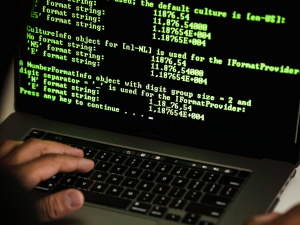 As a forward-thinking business leader, you've likely implemented Multi-Factor Authentication (MFA) across your organization's accounts and devices to bolster cybersecurity. MFA, by design, introduces an additional layer of security, requiring users to verify their identity beyond just a password.
As a forward-thinking business leader, you've likely implemented Multi-Factor Authentication (MFA) across your organization's accounts and devices to bolster cybersecurity. MFA, by design, introduces an additional layer of security, requiring users to verify their identity beyond just a password.
However, even with its increased security benefits, MFA is not impervious to exploitation by determined cyber criminals. Understanding and addressing these vulnerabilities is crucial for safeguarding your business against unauthorized access.
Understanding Multi-Factor Authentication
MFA enhances security by requiring two or more verification factors, making unauthorized access significantly more challenging. These factors include:
Something you know: A password, PIN, or answer to a security question.
Something you have: A device that can receive a verification code via email, phone call, or SMS.
Something you are: Biometric identifiers like fingerprints or facial recognition.
Somewhere you are: Verification based on the user's physical location.
Something you do: Behavioral biometrics that identify unique user interactions with devices.
Strategies to Strengthen MFA and Cybersecurity
To maximize the benefits of MFA while minimizing its vulnerabilities, consider the following advanced security measures:
Implement Risk-Based Authentication
This approach adds a dynamic layer to MFA by adjusting authentication requirements based on the perceived risk of a login attempt. Factors triggering enhanced scrutiny might include logins from unfamiliar devices, high-risk locations, or outside designated IP ranges.
Adopt Passkeys
Passkeys represent a sophisticated evolution in authentication technology, combining something the user has (a device like a smartphone) with something the user knows (a PIN) or is (biometric data). By generating a unique cryptographic key for each session, passkeys offer robust resistance against phishing and other forms of attack.
Seek Expert Guidance
Cybersecurity is a rapidly evolving field, and staying ahead of threats requires constant vigilance and expertise. Partnering with a seasoned IT consulting firm or managed services provider can equip your business with the latest security technologies and strategies, tailored to your specific needs.
Why MFA Matters for Texas Businesses
For companies in Austin, Round Rock, Georgetown, Taylor, Jarrell, and Cedar Park, and indeed across Texas, the stakes have never been higher. The rise in remote work and digital transactions has exposed businesses to an array of sophisticated cyber threats. Incorporating MFA, alongside other cybersecurity measures like network security, Azure expertise, Microsoft 365 integration, and ransomware protection, is not just recommended: It's essential for safeguarding your digital assets and ensuring the continuity of your operations.
Moving Forward
While MFA is a powerful tool in the cybersecurity arsenal, no defense is impenetrable. By understanding the potential weaknesses within MFA systems and implementing additional layers of security, you can significantly enhance the protection of your business's digital environment. Embrace the complexity of modern cybersecurity with a strategic approach to MFA and consider enlisting the support of IT and cybersecurity experts to navigate this challenging landscape. Together, we can secure our businesses against the evolving threats of the digital age.
